Feature
-
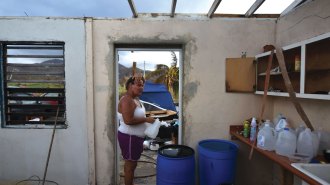 Climate
ClimateA coral pollution study unexpectedly helped explain Hurricane Maria’s fury
Tracking coral reef pollution in Puerto Rico, conservation researchers discovered by chance how the coastal ocean fueled Hurricane Maria.
-
 Astronomy
AstronomyThe discovery of the Kuiper Belt revamped our view of the solar system
Thirty years ago, astronomers found the Kuiper Belt, a region of space home to Pluto and other icy worlds that helped show how the solar system evolved.
-
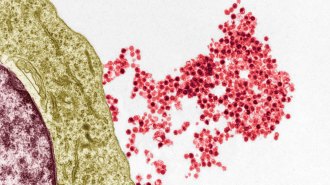 Health & Medicine
Health & MedicineMultiple sclerosis has a common viral culprit, opening doors to new approaches
Learning how the common Epstein-Barr virus may trigger multiple sclerosis could help experts design better treatments — or perhaps end the disease.
-
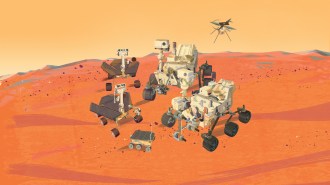 Space
SpaceHow Mars rovers have evolved in 25 years of exploring the Red Planet
Over 25 years, remotely controlled rovers have uncovered Mars’ watery history and continue to search for evidence that life once existed there.
-
 Neuroscience
NeuroscienceSpinal stimulation gives some people with paralysis more freedom
Methods that stimulate the spine with electrodes promise to improve the lives of people with spinal cord injuries, in ways that go well beyond walking.
-
 Environment
EnvironmentElectrical bacteria may help clean oil spills and curb methane emissions
Cable bacteria are living electrical wires that may become a tool to reduce methane emissions and clean oil spills.
By Nikk Ogasa -
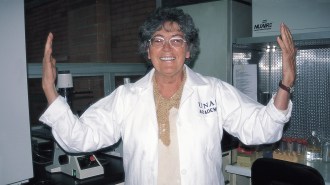 Neuroscience
NeuroscienceHerminia Pasantes discovered how taurine helps brain cells regulate their size
Mexican scientist Herminia Pasantes spent decades studying how nerve cells regulate their size and why it’s so vital.
-
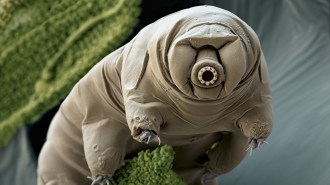 Animals
AnimalsTardigrades could teach us how to handle the rigors of space travel
Tardigrades can withstand X-rays, freezing and vacuum. Now researchers are learning how they do it, with an eye toward human space travel.
By Douglas Fox -
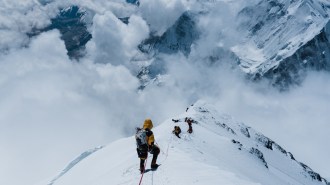 Anthropology
AnthropologyDemond Mullins climbed Everest to inspire more Black outdoor enthusiasts
Mullins hopes his successful Mount Everest summit will encourage more Black people to experience the great outdoors.
-
 Health & Medicine
Health & MedicineHow scientists are shifting their search for links between diet and dementia
Studies of food’s impact on Alzheimer’s disease and dementia are hampered by complexity. Scientists hope new research approaches prove more fruitful.
-
 Particle Physics
Particle PhysicsHow physicists are probing the Higgs boson 10 years after its discovery
The famous particle may point to cracks in the standard model and new physics beyond.
-
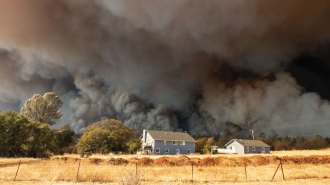 Health & Medicine
Health & MedicineWestern wildfires’ health risks extend across the country
As western wildfires become more common, hazardous smoke is sending people — especially children — to emergency rooms on the East Coast.
By Megan Sever